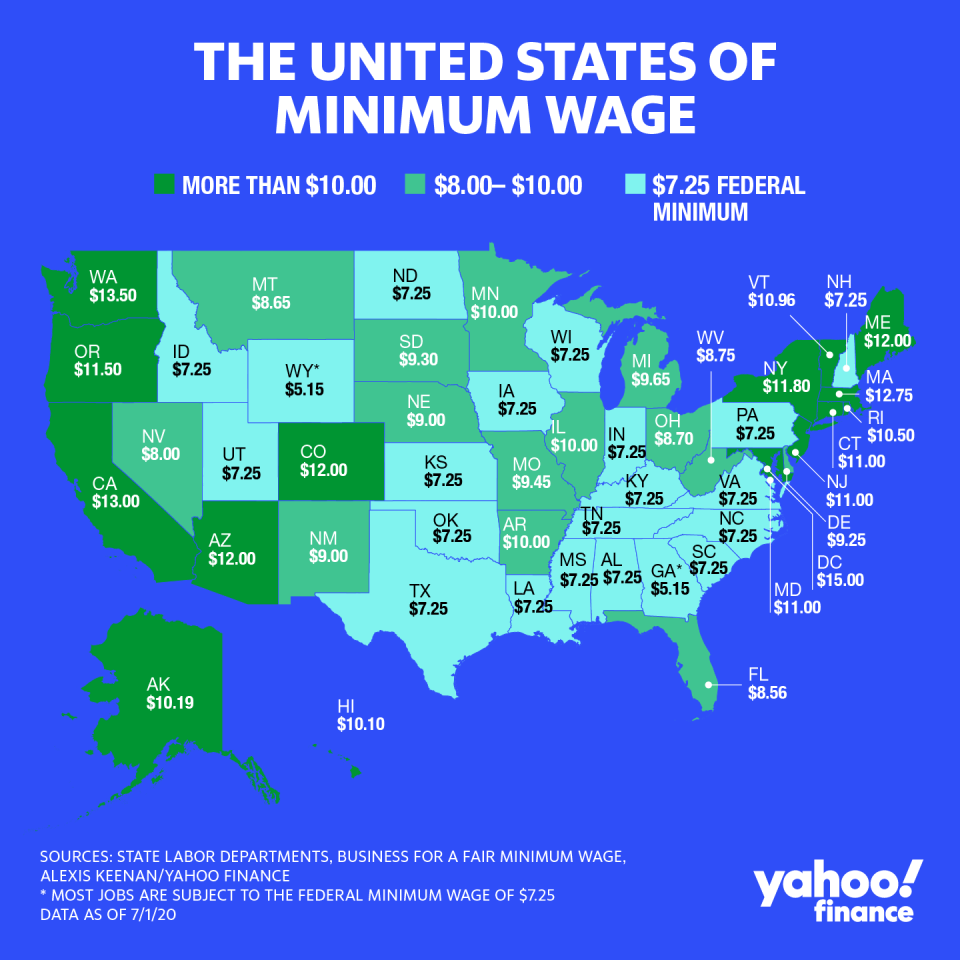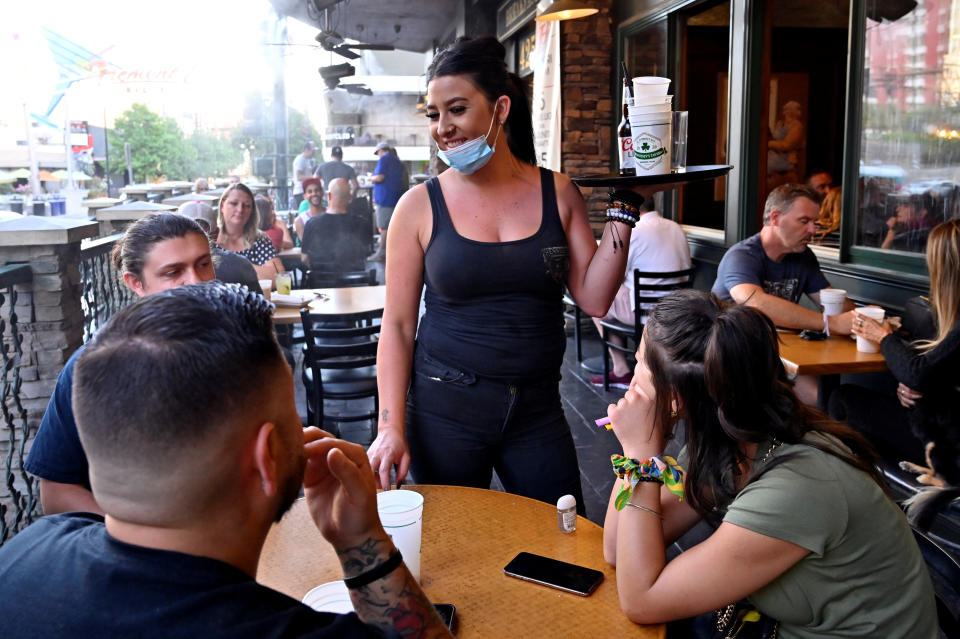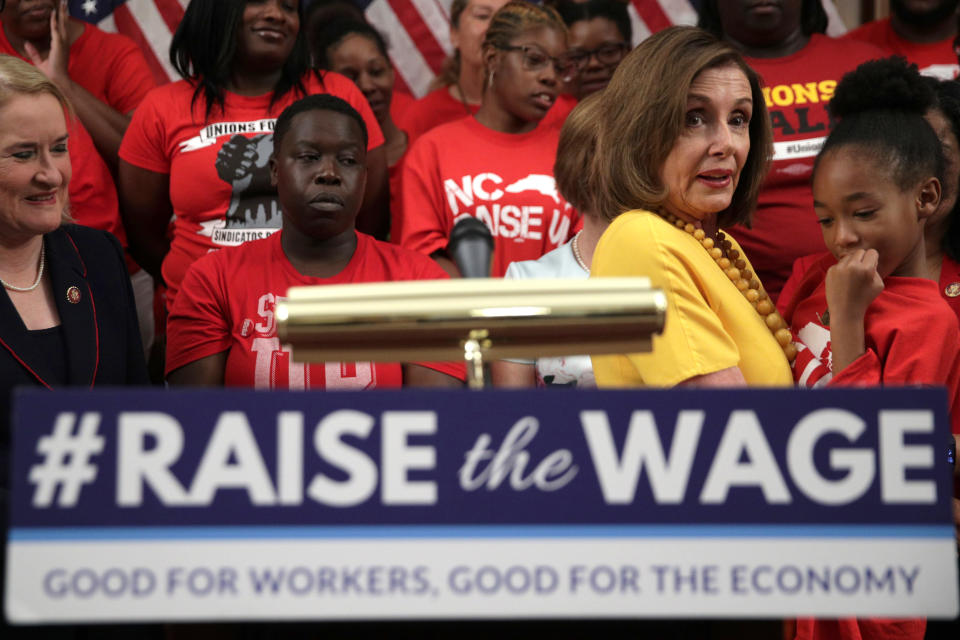'Now?’: Some employers push back against minimum wage hikes amid coronavirus pandemic
As the U.S. economy tries to get back on its feet after the coronavirus-induced recession brought businesses to a standstill, businesses in several states and cities across America will see their minimum wage rate increase as of July 1.
Illinois is scheduled to raise its minimum wage from $9.25 an hour to $10. Nevada is expected to raise the minimum wage rate to $8 for employees who are offered health benefits and $9 for employees without health benefits.
Oregon, which also has a tiered system, will raise the minimum wage to $13.25 an hour in the tri-county Portland area, $12 in most of west Oregon, and $11.50 in most of eastern and central Oregon. And the District of Columbia will raise its minimum wage rate from $14 to $15 an hour.

Some businesses aren’t happy about the mandatory wage hikes and the additional costs in the current climate.
“In the best of times, it's often difficult for business owners to comply with minimum wage increases,” Holly Wade, director of research and policy analysis for the National Federation of Independent Business, which represents small businesses, told Yahoo Finance.
And “in a situation that we're in now — an economic crisis — it is incredibly difficult, as small business owners are trying scale back costs as much as possible, keep qualified employees on payroll as much as possible” Wade added. “And it just gets even more difficult when there are cost increases that they can't control.”
‘Really? … Now?’
Workers in 19 states still earn the federal minimum of $7.25. Two additional states — Wyoming and Georgia — have a state minimum wage below the federal level but workers there are entitled to the federal minimum wage unless their employer is not covered by the federal Fair Labor Standards Act.
Business in states facing new hikes expressed their displeasure.
“Fifty percent of my business is gone, but I’m supposed to give everyone a raise? It’s very frustrating,” Kelly Hodgins, who runs Kelly’s Sun Valley Bar in Reno, Nevada, told a local news outlet Northern Nevada Business View. “It’s not that I’m against raising the minimum wage, it’s just kind of like: Really? … Now?”

Illinois Retail Merchants Association CEO and President Rob Karr also pushed back.
"It is a tone deaf response to not have suspended [the wage hike], given that retailers are operating at far less than their normal capacity,” Karr told a local news outlet NewsChannel 20 in Springfield, Illinois. “The ways that they are operating them now are actually costing them more to operate, and now we are going to lay out another artificial cost on top of that.”
Hayward and San Carlos, both cities in the San Francisco area, voted to delay the July 1 hike. Others are still debating such a move.
The case for a delay in the minimum wage hike is this: Defer the hike until the economic environment improves. Wade noted that having to absorb the cumulative effect of a minimum wage hike, on top of paid leave and local, state and federal taxes owed, is hard for a business owner amid a recession and a pandemic.
Effects of a minimum wage hike
According to a paper by American Enterprise Institute, which examined data from the American Community Survey (ACS) and Current Population Survey (CPS) in 2016, large increases in statutory minimum wages reduced employment among individuals — particularly for those with low levels of experience and education — by just over 2 percentage points.
On the other hand, an increase in the minimum wage — particularly during this pandemic — could help consumer demand recover, the Economic Policy Institute (EPI) argued.
“If anything, current conditions make it even more important for governments to strengthen pay standards, especially those that help low-income households’” wrote EPI’s Senior Economic Analyst David Cooper in a recent report.

By putting more money in the “pockets of people who are highly likely to spend every additional cent they receive … raising the minimum wage in a period of depressed consumer demand is smart policy,” Cooper stated.
In any case, economists don’t consider the July 1 hike to move the needle at a macro level.
“There might be a small number of businesses ... that will be hurt by increased labor costs, and there will likely be many households who are positively impacted by the wage increase,” Credit Suisse’s James Sweeney told Yahoo Finance.
“But of much more importance to short term local labor dynamics will be whether expanded unemployment assistance is extended somehow after the deadline on July 31 and, obviously, the path of the pandemic and whether it either forces more shutdowns or prevents normal business activity by promoting voluntary social distancing.”
‘We’re not chasing the bottom line’
For some owners, raising the wages of their employees wasn’t as much an economic or financial argument. Rather, it was about loyalty.
In Leesburg, Virginia, Curtis Allred, president of the Rocket Hospitality Collective, which includes Delirium Cafe U.S.A. and Wild Wood Pizza, made the decision to pay his employees $15 an hour in March despite the growing pandemic.
Virginia’s minimum wage is currently $7.25.

“We made the decision knowing that we wanted to attract people who were committed to improving and learning and enhancing the guest experience,” Allred explained to Yahoo Finance, adding that “if all of their income is coming from the guests and none of it's coming from you, then their loyalty will never be to you.”
Allred made changes to the business model (on top of pandemic-induced changes) such as transitioning to no table service and hiring fewer employees to support the $15 an hour wage.
The company, which transitioned to carry out and delivery only in mid-March and is slowly reopening, now employs 35 workers including Allred. Pre-pandemic, that count was at 94.
The changes “are not to somehow go after profitability,” he added. “We’re not chasing the bottom line, we're chasing an operational normalcy that will allow us to be successful long term.”
—
Aarthi Swaminathan is a reporter for Yahoo Finance.
Read more:
Coronavirus caused income loss for nearly half of American households
Job openings for new grads collapsed amid pandemic, Glassdoor data shows
Read the latest financial and business news from Yahoo Finance
Follow Yahoo Finance on Twitter, Facebook, Instagram, Flipboard, SmartNews, LinkedIn,YouTube, and reddit.
